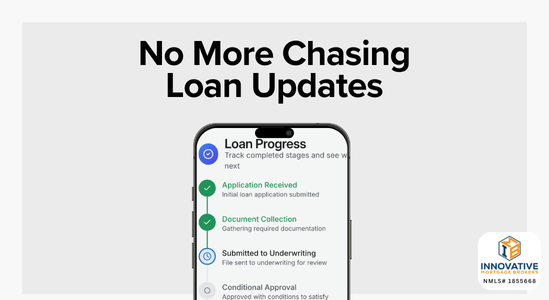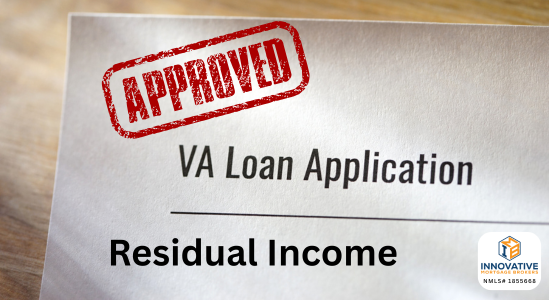Mortgage rate volatility, oil shocks, and why execution matters more than quotes When a war…
How to Determine your Home’s Total Monthly Costs

You applied for a mortgage and know the principal and interest, but do you know what else goes into your home’s monthly costs?
Your mortgage payment usually includes more than principal and interest, depending on how you set it up and the circumstances of where you’re moving. In addition, there are other monthly costs of owning a home to consider.
Here’s what you must know.
Principal
The principal is the amount you borrow. For example, if you borrow $200,000 over a 30-year term, your principal would be amortized (split up) over the 30-year term. So you pay a small amount each month, and at the beginning of the loan, you pay more interest than the principal. However, as you get further into the term, you pay more principal than interest.
Interest
Every lender charges interest on the amount you borrow. This is the charge to keep their funds outstanding and is a percentage of the loan amount. The interest charges are in addition to your principal payment. The total interest you pay each month decreases slightly as you keep paying your balance down.
Taxes and Insurance
If you add an escrow account to your mortgage payment, your taxes and insurance will be a part of your payment to the mortgage company. If you don’t, you’re still responsible for paying your taxes and insurance and should include them in your monthly costs.
To determine how much you must pay monthly, take the total tax bill and divide it by 12. Then do the same for your insurance bill. Be sure to ask sellers how often the tax bill changes in the area and the average amount it has increased throughout the years. This will help you determine what your payment may change to moving forward.
Your taxes and insurance could fluctuate throughout homeownership, causing your payment to change. If you set up an escrow account, your mortgage lender will do an annual escrow analysis to determine if your tax and insurance bills have changed. If so, they’ll adjust your mortgage payment accordingly.
Homeowner’s Association Dues
If your development has a homeowner’s association, it is a part of your monthly costs. You must pay the bill when due (monthly quarterly, or annually), as it’s part of the agreement to live there. Be sure you know the total cost and any provisions for special assessments if you live in a condo or townhouse. For example, if they determine the entire development needs new windows, they may enforce a special assessment to cover the cost of the repairs.
Mortgage Insurance
You may be responsible for paying mortgage insurance, depending on the type of mortgage you borrow.
USDA and FHA loans require mortgage insurance for all borrowers for the life of the loan, or less depending how much you put down. The USDA charges 0.35% of your mortgage balance, and the FHA charges 0.55%. These amounts remain the same throughout the life of the loan unless you refinance out of the loan program.
Conventional loans require Private Mortgage Insurance if you borrow over 80% of the home’s value. The percentage you’ll pay varies based on your credit score and the loan-to-value ratio. However, PMI doesn’t last for the loan’s term. You can cancel it when you’ve paid your loan balance to less than 80% of the home’s value.
Utility Costs
Utility costs are another major factor in your home’s total monthly costs. You need gas, electricity, and water to run a household, so include the costs in your monthly payments. When looking at homes, ask the seller about the average costs. Each area has different rates, so knowing the average cost in the area can help you determine if it’s affordable.
Maintenance and Repairs
Finally, always include maintenance and repairs in your home’s monthly costs. On average, homeowners spend 1% of the home’s value on maintenance and repairs annually. For example, if your home is worth $500,000, expect to spend $5,000 yearly on maintenance and repairs. You can figure in a monthly amount to ensure you have enough.
How to Keep your Monthly Housing Costs Lower
In today’s economy, everyone looks for ways to lower their expenses, and monthly housing costs are usually the highest.
Here are a few ways to lower your costs.
Shop for the Lowest Interest Rate
When shopping for a mortgage, look for one with the most attractive terms. One key benefit of working with a mortgage broker is that you’ll have access to a wider range of lenders than if you were just dealing with one bank. A mortgage broker works with multiple lenders and can help you find the best loan option that suits your needs and financial situation. They can compare rates and mortgage products from different lenders and provide you with a range of options to choose from.
Use Energy Efficient Appliances
Despite the average utility costs in the area, you can lower your costs by installing energy-efficient appliances. You can also limit your energy usage by turning off lights, programming thermostats to use less energy at night or when no one is home, and running major appliances, like the dishwasher and dryer, at night.
Refinance to Eliminate Mortgage Insurance
If you pay mortgage insurance, consider refinancing when you owe less than 80% of the home’s current value. Of course, it helps if you have good credit and a low debt-to-income ratio at the time, too, as you’ll get the most competitive rate available at the time.
Keep up with Home Maintenance
Don’t ignore your home’s regular maintenance. The more preventative maintenance you do, the less expensive your repairs will be. For example, if you leave a leaky pipe unfixed, it can become a major project requiring complete remediation, costing much more than a simple repair.
Final Thoughts
Your home’s monthly costs are important. Look at not only the home’s principal and interest but also the total cost of owning a home before choosing one. Of course, the mortgage is a big part, but there are taxes, insurance, HOA dues, mortgage insurance, and home maintenance to consider too.
The total cost will help you determine what you can comfortably afford, so you don’t get over your head.
Working with Innovative Mortgage Brokers, we can provide you with access to more lenders, knowledge and expertise, time savings, lower rates and better terms, as well as personalized service.
At Innovative Mortgage Brokers we stay up to date on industry news, changes in regulations, and the latest trends affecting the mortgage industry. This knowledge and expertise allow us to provide valuable advice and guidance to our clients. We can help clients navigate the mortgage process, understand mortgage products, and make informed decisions.
If you’re looking to purchase a home in PA or Florida, consider working with us to help guide you through the process and find the best loan option for your needs.
In conclusion, buying a home is exciting, but it is also important to take the time to consider the total monthly costs of homeownership. By doing so, you can ensure that you are making an informed decision about your ability to afford the home you want. And as always, if you have any questions or need help crunching the numbers, don’t hesitate to reach out to us.




